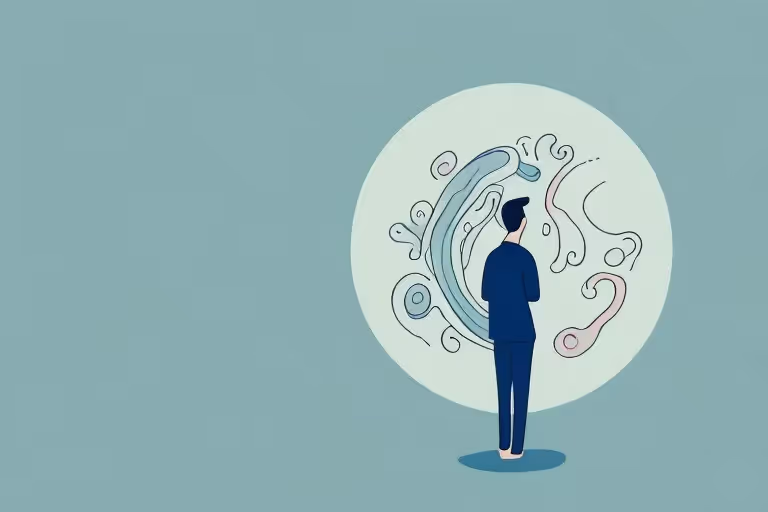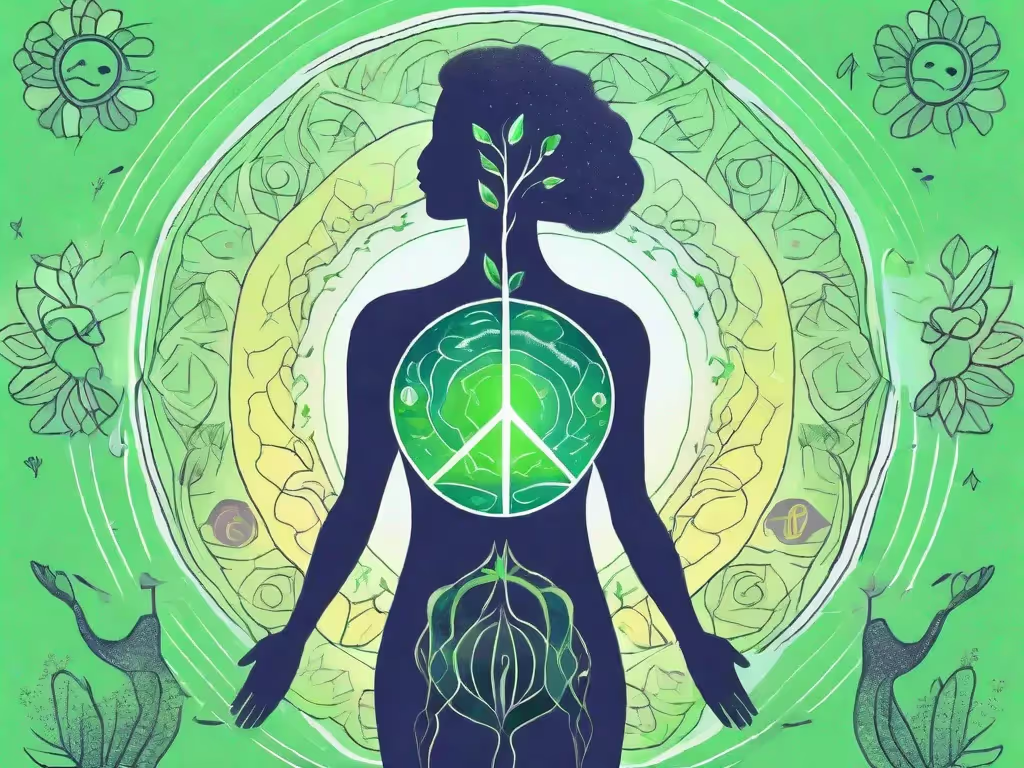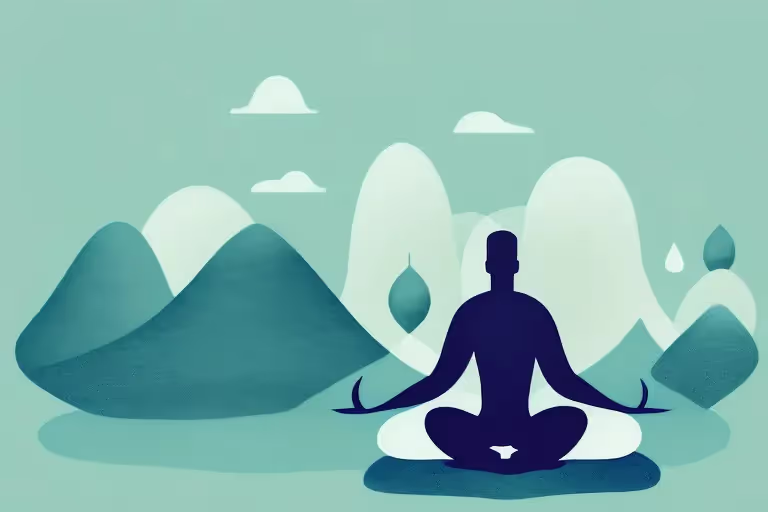In our modern, fast-paced world, finding a moment of peace can often feel like searching for a needle in a bustling city. But what if there was a simple technique that could offer you a respite from the constant stress in just two minutes? Welcome to the concept of 2-minute meditation - your quick fix to deal with overwhelming situations in an undemandingly gentle way.
Understanding the Power of Meditation
The power of meditation cannot be underestimated. It's about harnessing our collective consciousness, gently taking control of our thoughts and navigating the course of our emotional journey with determination and peace.
Meditation has been practised for thousands of years, revered for its ability to reduce stress, promote relaxation and boost personal and professional productivity.
But what exactly happens when we meditate? Let's delve deeper into the science behind meditation to understand its profound effects on our minds and bodies.
The Science Behind Meditation
It's not just ancient wisdom that touts the benefits of meditation. Numerous scientific studies back the efficacy of meditation, highlighting its positive impact on the human brain and overall physical health.
When we meditate, our brain undergoes a fascinating bio-chemical reaction. It triggers the release of mood-enhancing hormones like serotonin and oxytocin, immediately contributing to a sense of peace and tranquillity. These hormones not only make us feel good, but they also have a direct impact on our mental and physical well-being.
Moreover, meditation has been found to have a profound transformative effect on the brain structure. Through neuroplasticity, the brain's ability to change and adapt, regular meditation can lead to significant changes in areas associated with focus, memory, self-awareness, and stress regulation.
Aura has the world’s largest and best collection of Meditations and hundreds of Coaches to choose from.
Try it Free!
How Meditation Affects the Brain
One of the key areas of the brain that is positively affected by meditation is the prefrontal cortex. This region is responsible for executive functions such as decision-making, problem-solving, and emotional regulation. With regular practice, meditation can actually increase the size of the prefrontal cortex, enhancing its capabilities.
By strengthening the prefrontal cortex, meditation reduces the activity in the amygdala, which is responsible for processing emotions like fear and stress. This reduction in amygdala activity leads to a decrease in feelings of anxiety and a greater sense of emotional control.
Furthermore, meditation has been shown to improve connectivity between different regions of the brain, allowing for better communication and integration of information. This enhanced connectivity leads to improved cognitive functions, such as attention and memory.
When meditation becomes a part of your routine, these changes to your brain structure can lead to lasting benefits. Increased focus, reduced stress, improved emotional regulation, and enhanced cognitive abilities are just a few of the positive outcomes that regular meditation can bring.
So, the power of meditation goes beyond just a temporary state of relaxation. It has the potential to reshape our brains and transform our lives in profound ways. Whether you're a beginner or an experienced practitioner, incorporating meditation into your daily life can unlock a world of benefits for your mind, body, and spirit.
The Stress Epidemic
American individuals struggle with stress more now than ever before. The demanding pace of modern life makes it challenging for many to tap into their inner tranquillity and peace at will.
Stress has become a ubiquitous part of our daily lives, infiltrating our minds and bodies with its toxic presence. It seems as though we are constantly bombarded by stressors, both big and small, that threaten to overwhelm us at any given moment. Whether it's the pressure to meet deadlines at work, the expectations placed upon us by society, the financial worries that keep us awake at night, or the personal problems that weigh heavily on our hearts, modern life can feel like a constant battleground.
The Impact of Stress on Health
Chronic stress can cause significant harm to our mental and physical health. It can lead to heart disease, elevate blood pressure, induce mental disorders like depression and anxiety, and even speed up the body's aging process.
When stress becomes a chronic condition, it takes a toll on our bodies and minds. Our hearts bear the burden of elevated blood pressure, increasing the risk of heart disease and other cardiovascular problems. Our mental well-being suffers as stress chips away at our resilience, leaving us vulnerable to the grip of depression and anxiety. And as if that weren't enough, stress can even accelerate the aging process, leaving visible marks on our skin and weakening our immune system.
But the impact of stress goes beyond the physical and mental realm. It seeps into every aspect of our lives, affecting our relationships, our productivity, and our overall quality of life. It casts a dark shadow over our ability to find joy and fulfillment, leaving us feeling trapped in a never-ending cycle of stress and dissatisfaction.
How Modern Life Contributes to Stress
From work pressures to societal expectations, financial worries to personal problems, modern life can feel like a constant battleground. These stressors take our mind far from the present moment, creating a cycle of stress that seems difficult to break.
In today's fast-paced world, the demands placed upon us seem never-ending. The pressure to excel at work and climb the corporate ladder is relentless, leaving little time for relaxation and self-care. We find ourselves constantly striving to meet the expectations of others, whether it's our bosses, our peers, or even our own families. The fear of failure looms large, driving us to push ourselves to the brink of exhaustion in pursuit of success.
Financial worries add another layer of stress to our already burdened minds. The rising cost of living, coupled with the ever-increasing pressure to keep up with the latest trends and maintain a certain standard of living, can leave us feeling trapped in a never-ending cycle of financial stress. We find ourselves constantly juggling bills, worrying about making ends meet, and sacrificing our own well-being in the pursuit of financial stability.
On a personal level, we all face our own unique set of challenges and problems. From relationship issues to health concerns, the weight of these personal struggles can be overwhelming. We find ourselves consumed by worry and fear, unable to fully enjoy the present moment due to the constant nagging of our personal problems.
It's no wonder, then, that stress has become an epidemic in our modern society. We are bombarded from all sides by stressors that threaten to derail our sense of well-being and inner peace. But amidst the chaos and turmoil, it's important to remember that we have the power to take control of our stress and reclaim our lives.
Introducing the 2-Minute Meditation
But what if there was a technique that could interrupt this cycle? Enter the arena - the refreshing concept of the 2-minute meditation.
In today's fast-paced world, it's easy to get caught up in the whirlwind of thoughts and stress. Our minds are constantly bombarded with information, responsibilities, and distractions, leaving us feeling overwhelmed and exhausted. We long for a moment of peace and tranquility amidst the chaos.
The Concept of 2-Minute Meditation
So, what exactly is the 2-minute meditation? True to its name, it's a concise meditation practice that requires only two minutes of your time. It's aimed at bringing your focus back to the now, momentarily free from the jumbles of thoughts and stress.
Imagine taking a short break from the demands of your day, finding a quiet space, and dedicating just two minutes to reconnecting with yourself. It's a simple yet powerful practice that can have a profound impact on your overall well-being.
Why 2-Minute Meditation Works
Two minutes might not seem like a lot, but it's more than enough to provide a mental reset. In the hectic hustle-bustle of daily life, those 120 seconds of mindfulness can be a breath of fresh air.
During these two minutes, you give yourself permission to let go of all the worries and distractions that weigh you down. You focus on your breath, allowing it to anchor you to the present moment. As you inhale and exhale, you create a space within yourself that is free from judgment and expectations.
It's the small, consistent steps that we take across time that yield significant changes. Similarly, a few moments of daily meditation can accumulate and manifest substantial mental and emotional transformation.
By incorporating the 2-minute meditation into your daily routine, you are nurturing a practice of self-care and self-awareness. You are carving out a sacred space for yourself, where you can find solace and clarity amidst the chaos. Over time, this practice can cultivate a sense of inner calm, resilience, and clarity of mind.
As you continue to explore the world of meditation, you may find yourself naturally extending those two minutes into longer periods of stillness and introspection. The 2-minute meditation becomes a gateway to a deeper and more profound connection with yourself and the world around you.
How to Practice 2-Minute Meditation
Now that you understand why 2-minute meditation works, let's explore how we can incorporate it into our daily lives. It's incredibly straightforward and accessible for all.
Preparing for Meditation
Though no specific preparation is required, it's essential to approach the practice with an open, calm mind. Find a quiet space where you won't be disturbed, sit comfortably, and set a timer for two minutes.
Step-by-Step Guide to 2-Minute Meditation
Now to start your 2-minute meditation, close your eyes and begin focusing on your breath. Breathe in deeply, hold for a moment, then breathe out slowly. Concentrate on the rhythm of your breathing, letting your thoughts pass through without judgement.
It's common for the mind to wander during meditation. If it does, simply acknowledge it and then gently draw your attention back to your breath. After two minutes, slowly open your eyes and take a moment to notice how you feel.
Benefits of 2-Minute Meditation
The effects of 2-minute meditation extend far beyond those 120 seconds. They permeate into different facets of your life, instilling a sense of balance and calmness that's otherwise hard to maintain.
Immediate Benefits of Short Meditation
Immediately after a 2-minute meditation session, you'll notice a heightened sense of calm and connectedness with the present moment. You'll feel relaxed, centred and tuned into your body. The breathwork involved in this short meditation also helps slow down your heart rate, reducing feelings of anxiety or stress.
Long-Term Benefits of Regular Practice
In the long term, regular 2-minute meditation fosters resilience against stress. It cultivates emotional stability, improves focus and memory, and sparks personal growth. It helps you unlock a more peaceful world amidst chaos, and leads you to a happier, healthier life with just two minutes a day.
Of course, the key to reaping these benefits is consistent practice - something that the Aura Health app can offer. This app makes meditation easy for people of all experience levels, with guided meditations, soothing sounds, and a supportive community. Getting started with 2-minute meditation can be as simple as opening the app. Explore the possibilities and embrace the journey of mindfulness, peace, and stress reduction with the Aura Health app.
Aura is Your All In One App for Meditation, Mindfulness Wellbeing
Find peace every day with one app for your whole well-being. There is no one-size-fits-all solution to mental well-being. Aura is the first all-in-one wellness app that learns how to best help you. Discover an endless library of expert-created tracks for your well-being, all taught by the world’s best coaches, therapists, and storytellers. With Aura's personalized recommendations, you can find peace every morning, day and night.



.webp)






.avif)

%20(1).avif)


.avif)
.avif)
.webp)


.avif)


















































































































.avif)

















.svg)









